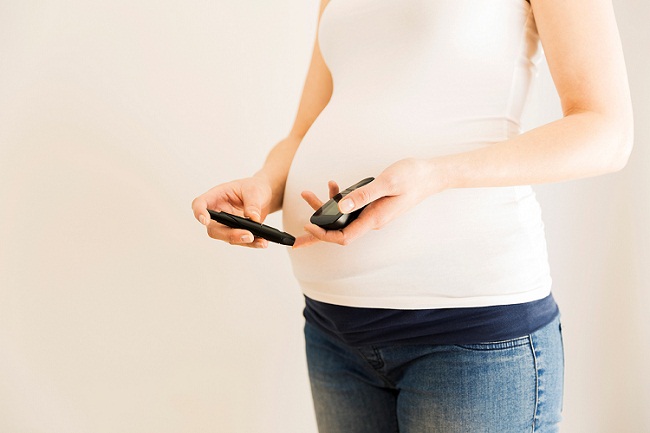Diabetes during pregnancy is called gestational diabetes which happens to some women during pregnancy. This happens because blood sugar levels rise up during the whole time you are pregnant.
What causes gestational diabetes?
When you are pregnant, your placenta makes hormones that leads to glucose build up in your blood. Generally, your pancreas makes enough insulin. In other cases, the blood sugar increases and causes gestational diabetes.
Are you at a potential risk of developing gestational diabetes?
You are more likely to develop gestational diabetes if you:
- Have been overweight even before pregnancy
- Have high blood sugar levels but not so high to be a diabetic
- Have a family history of diabetes
- Have already had gestational diabetes before
- Have other medical complications or high blood pressure
- Have delivered a large baby before
- Have had certain birth defects during delivering a baby
Symptoms of diabetes during pregnancy
Usually there are no symptoms for gestational diabetes, the only time you come to know is during routine pregnancy screening tests. Otherwise, it is noticed that
- You feel more thirsty
- More hungry
- Need to pee frequently
Chances of having a healthy baby during gestational diabetes
In gestational diabetes you can definitely have a healthy baby. Your diabetes doctor will help you manage your blood sugar which is also called as blood glucose. Once you give birth, gestational diabetes naturally goes away. In rare cases, gestational diabetes puts you at a risk of developing type 2 diabetes, but there is definitely no such possibility in all the cases.
Treatment
Your doctor will help you with your gestational diabetes treatment, it will require you to:
- Check your blood sugar levels about 3-4 or more times a day
- Check for ketones with urine tests, which will determine whether your diabetes is under control or not
- A nutritious diabetes diet recommended by your doctor
- Break a sweat with a low-resistance physical activity four times a week or more
During your treatment, your doctor will track your weight gain and will recommend you to take insulin or other medications if required.
You will also be required to make some changes in your food intake. A diabetes diet chart advised by a nutritionist should be incorporated broadly, in gestational diabetes like:
- Eat small portions every two hours
- Include proteins like egg whites and cottage cheese/paneer in your meals
- Eat freshly cooked food. Avoid packaged foodstuff
- Include fresh fruits, salad vegetables and greens in your diet
- Avoid simple carbs and starchy foods like potatoes and rice
- Avoid alcohol and sugary beverages
- Limit the intake of chocolates and desserts
- Take small amounts of dairy products
Diabetes symptoms after pregnancy
Women who have diabetes before and during pregnancy will remain at a high risk even after many years later. But this risk can be reduced with medications and other lifestyle changes. Also, here’s what you can do to avoid the risk of developing type 2 diabetes later after getting gestational diabetes:
- Learn the symptoms of postpartum depression from your doctor
- Continue your follow-up medical treatments
- Include diabetes diet and workout in your routine
- Breastfeed your child
Visit your nearest Apollo Sugar Clinics for a comprehensive diabetes check-up, with our team of experts – doctors, educators and dieticians.











